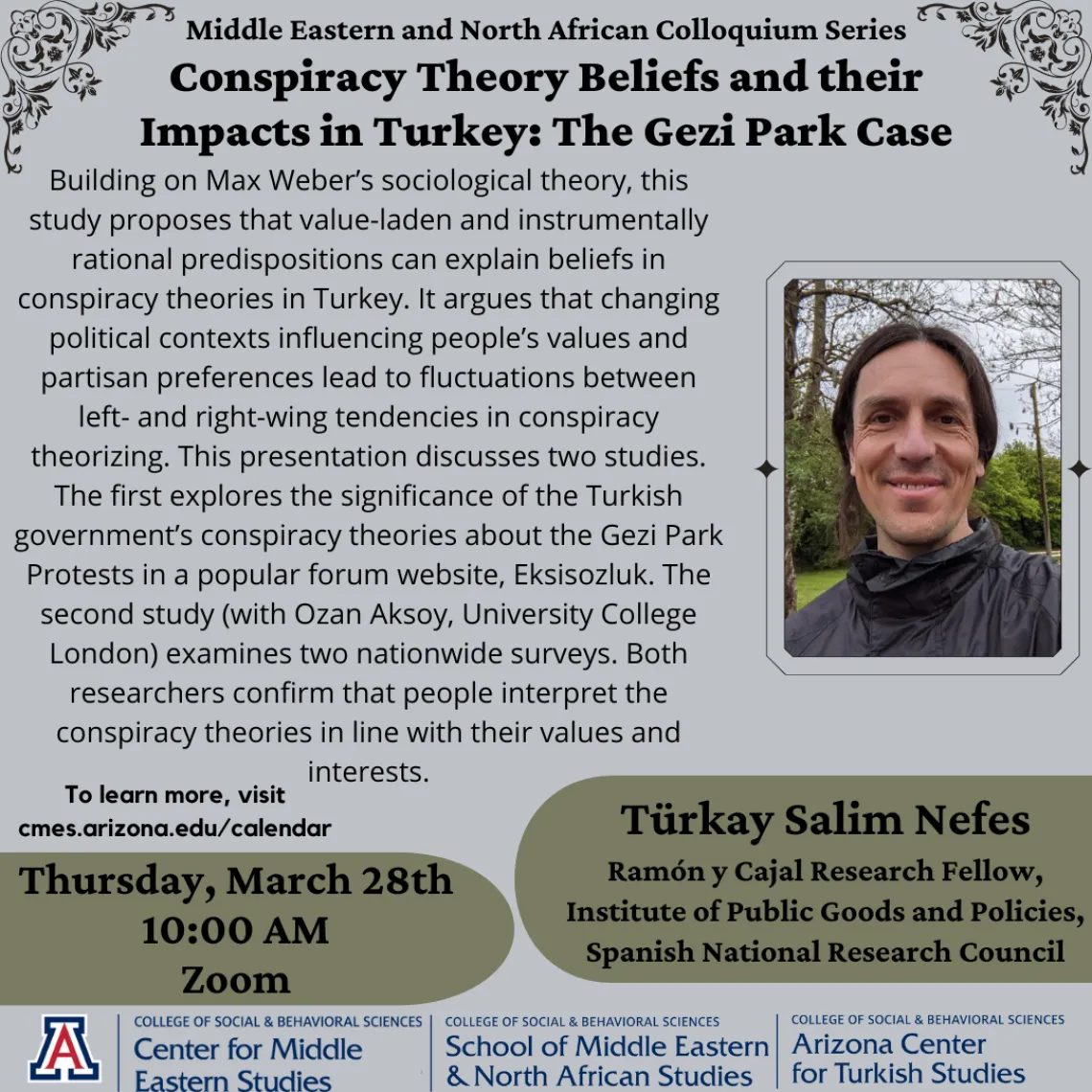
When
Türkay Salim Nefes: Ramón y Cajal Research Fellow, Institute of Public Goods and Policies, Spanish National Research Council
Türkay Salim Nefes is a Ramón y Cajal Research Fellow at the Institute of Public Goods and Policies of the Spanish National Research Council. Before this position, he was a William Golding Junior Research Fellow at the Brasenose College of the University of Oxford. His main research interest is on the diffusion and impacts of ethno-religious hostility, particularly conspiracy theories. He has published his work on conspiracy theories in academic journals including The British Journal of Sociology, Rationality and Society, Journal of Historical Sociology and The Sociological Review. His work can be accessed in https://www.researchgate.net/profile/Tuerkay_Nefes
Conspiracy Theory Beliefs and their Impacts in Turkey: The Gezi Park Case
Building on Max Weber’s sociological theory, this study proposes that value-laden and instrumentally rational predispositions can explain beliefs in conspiracy theories in Turkey. It argues that changing political contexts influencing people’s values and partisan preferences lead to fluctuations between left- and right-wing tendencies in conspiracy theorizing. The presentation discusses two studies. The first explores the significance of the Turkish government’s conspiracy theories about the Gezi Park Protests in a popular forum website, Eksisozluk. The second study (with Ozan Aksoy, University College London) examines two nationwide surveys. Both researches confirm that people interpret the conspiracy theories in line with their values and interests.
Register in advance for this meeting:
https://arizona.zoom.us/meeting/register/tZEqc-yopjMtG9LqUDuiRciRJWBYu4bHdUXc

